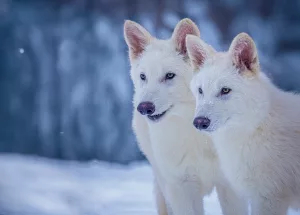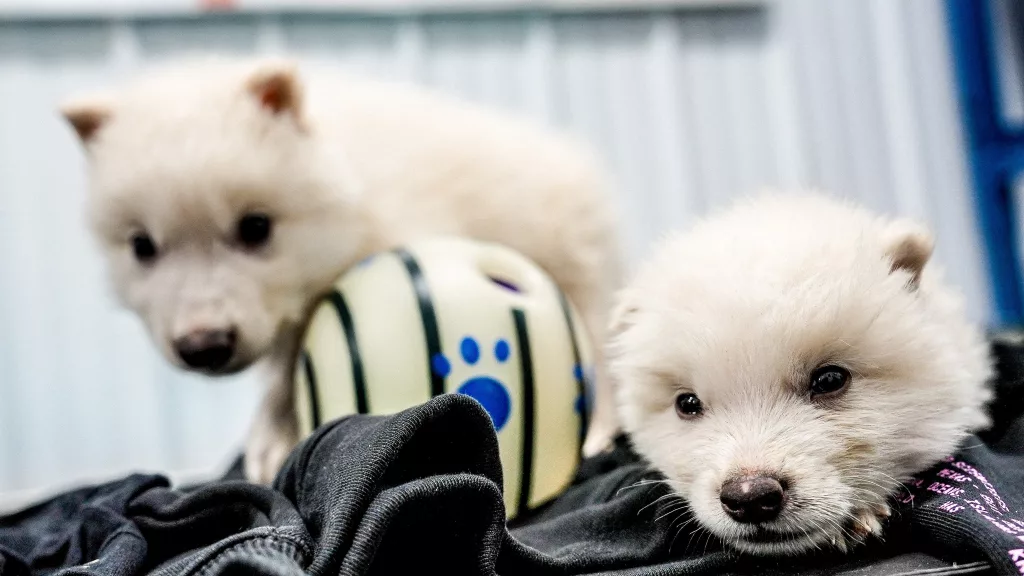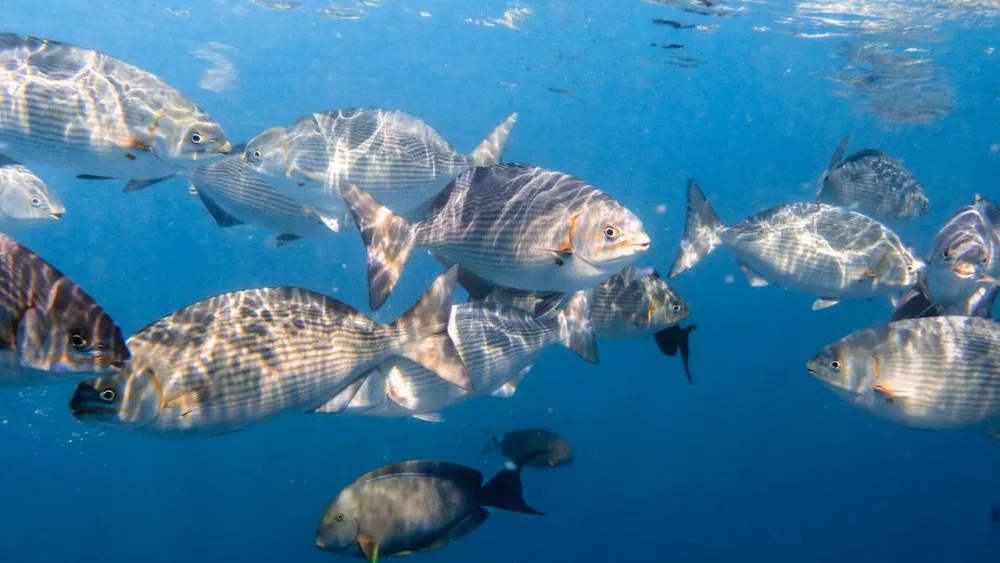DALLAS, TX – Earlier this week, Colossal Biosciences declared it had birthed “the world’s first successfully de-extincted animal.” The Texas company announced it used genetic engineering to breed dire wolf puppies.
According to a press release from the company, the dire wolf, largely assumed to be a legendary creature made famous from the HBO hit series Game of Thrones, was an American canid that had previously been extinct for over 12,500 years. “The successful birth of three dire wolves is a revolutionary milestone of scientific progress that illustrates another leap forward in Colossal’s de-extinction technologies and is a critical step on the pathway to the de-extinction of other target species,” says the release.
Dire wolves were distributed across the American midcontinent during the Pleistocene ice ages. The oldest confirmed dire wolf fossil, from Black Hills, SD, is around 250,000 years old. Dire wolves were as much as 25% larger than gray wolves and had a slightly wider head, light thick fur and stronger jaw. As hyper-carnivores, their diet comprised at least 70% meat from mostly horses and bison. Dire wolves went extinct at the end of the most recent ice age, around 13,000 years ago.
“I could not be more proud of the team. This massive milestone is the first of many coming examples demonstrating that our end-to-end de-extinction technology stack works,” said CEO of Colossal Ben Lamm. “Our team took DNA from a 13,000 year old tooth and a 72,000 year old skull and made healthy dire wolf puppies. It was once said, ‘any sufficiently advanced technology is indistinguishable from magic.’ Today, our team gets to unveil some of the magic they are working on and its broader impact on conservation.”
The three litters of Colossal’s dire wolves include two adolescent males (Romulus and Remus) and one female puppy (Khaleesi). Colossal also birthed two litters of red wolves from three different genetic founder lines. These litters include one adolescent female red wolf (Hope) and three male red wolf puppies (Blaze, Cinder, and Ash).
“Preserving, expanding, and testing genetic diversity should be done well before important endangered animal species like the red wolf are lost. Another source of ecosystem variety stems from our new technologies to de-extinct lost genes, including deep ancient DNA sequencing, polyphyletic trait analyses, multiplex germline editing, and cloning. The dire wolf is an early example of this, including the largest number of precise genomic edits in a healthy vertebrate so far. A capability that is growing exponentially,” said Harvard geneticist and co-founder of Colossal, Dr. George Church.

Picture of Colossal’s Dire Wolves; Romulus and Remus at age three months. Photo: Colossal Biosciences
The wolves are reportedly thriving on a 2,000+ acre secure expansive ecological preserve that is certified by the American Humane Society and registered with USDA. Colossal employs ten full time animal care staff to support the wolves’ physical and mental well-being. The entire preserve, which includes specialized engagement zones and habit types, is enclosed by 10-foot-tall, zoo-grade fencing with redundant perimeter security. Within the preserve, the wolves are continuously monitored through on-site live cameras, security personnel, and drone tracking to ensure their safety and welfare. The preserve includes a smaller, six acre secure site where the dire wolves can be further tended to and studied. This smaller area also supports an on-site veterinary clinic, a wolf management facility, an outdoor storm shelter, and natural built dens for the wolves.
The company says the conservation property will provide lifetime care, feeding, and protection for the wolves. The wolves will be monitored and observed to assess their readiness to move into larger protected and managed care facilities. Long term, Colossal plans to restore the species in secure and expansive ecological preserves potentially on indigenous land.
According to the American Association for the Advancement of Science, Colossal’s critics have pointed out that, out of thousands of genetic differences that distinguish dire wolves from gray wolves, the company made only a handful of edits focused on recapitulating obvious physical traits such as fur color and texture. Critics also say efforts to resurrect lost species divert resources and attention from threatened and endangered species living today.





